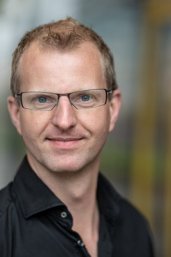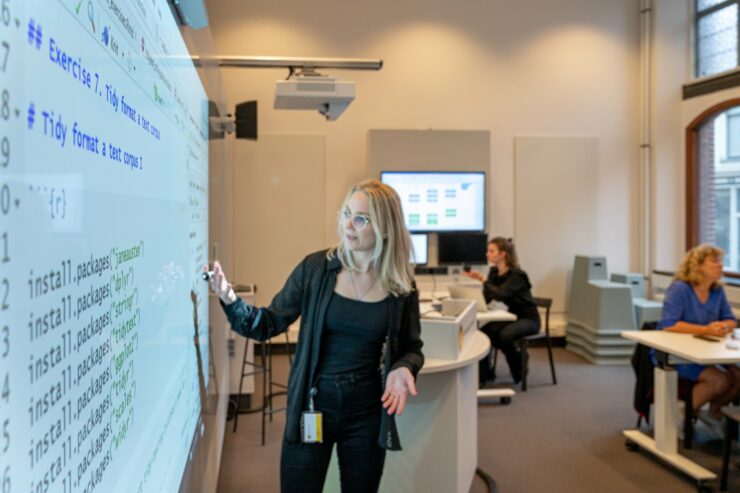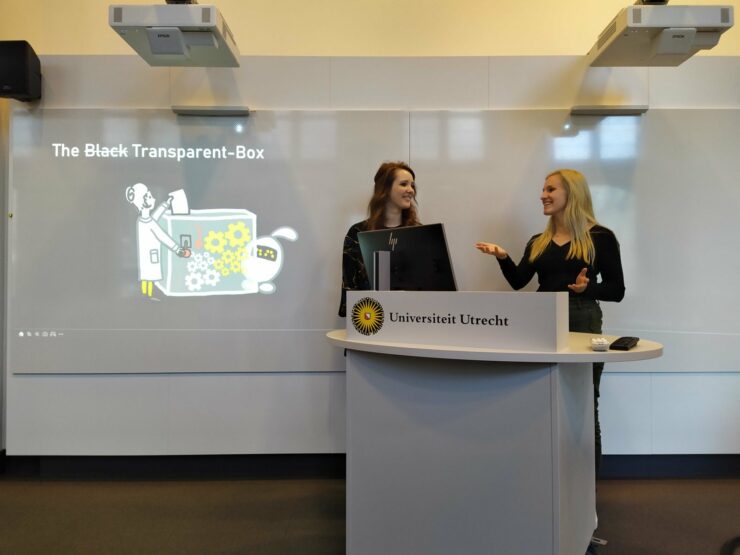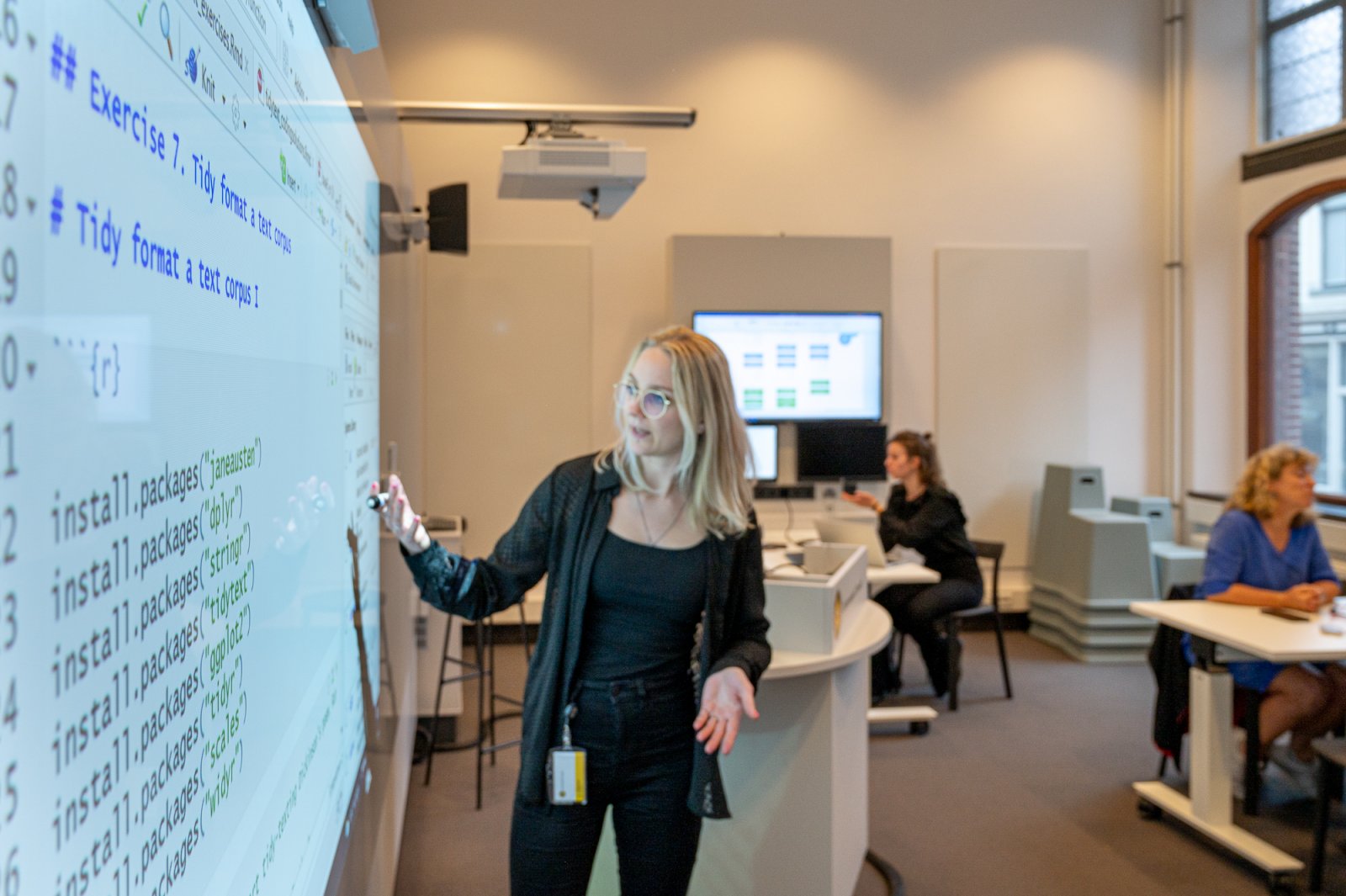Interviews
Automated systematic text reviewing in the Living Lab Digital Humanities
Since the summer, Prof. dr. Rens van de Schoot has been making weekly use of the Living Lab Digital Humanities in the Utrecht University Library City Centre with his Automated Systematic Review group (ASReview group). He talks about the added value of the Living Lab DH, working during the lockdown and expectations for the future.

The Living Lab Digital Humanities opened its doors on 20 May 2021 in the University Library City Centre. This multifunctional space responds to the increasing demand of researchers, inside and outside the Humanities, for more collaborative spaces with new possibilities. In and from the Living Lab DH, hybrid workshops, network meetings and training courses are hosted in the field of digital (humanities) sciences.
This summer, you and the ASReview group made weekly use of the Living Lab DH to do your research together. How did you end up here?
We used to work in De Fabriek in the Administration Building, but we couldn’t go there anymore due to fire safety issues during the renovation. So we suddenly had to look for another place and luckily we were able to find it in the Living Lab! And what a stroke of luck that was!
Can you tell us something about the ASReview research project you are working on and the cooperation with the university library?
Automated Systematic Review (ASReview) focuses on speeding up the screening phase within systematic reviews. A researcher normally has to sift through thousands of articles to find just those few relevant ones. With artificial intelligence, we ensure that a researcher does not read the articles in a random order, but based on relevance: From (probably) most relevant to least relevant. If the software indeed shows you all relevant articles first, then you don’t have to read everything anymore and that saves a lot of time, sometimes up to 95%, see our article in Nature Machine Intelligence!
The information specialists of the university libraries are very closely involved in the project. They help us (and other researchers) especially with creating the set of articles to be searched. From the search terms that you can best use to making a nice dataset that you can then load into the software!
What impact does ASReview have on your discipline and how can others learn from it?
ASReview is a large Open Source project where we develop all the code for the user-friendly front-end publicly on GitHub. Everyone can contribute to make the software a little better, or just remove spelling errors from our documentation. That makes working on this project really fun, because at any moment we can get a contribution from someone from all over the world with a super cool new solution. The people in our team therefore have to be very flexible and accept every day as a new challenge. The developments sometimes go very fast, but that also fits in well with the new form of science: from Me-Science to We-Science, from closed to Open-Science, and from counting your number of papers to numerous other forms of valuing output.

How do you like working in the Living Lab Digital Humanities?
First of all, working in the Living Lab Digital Humanities is very nice because presentations, workshops and other ‘big’ meetings are super to give here! The possibility to give a presentation standing up, without sitting behind a small screen, is very refreshing after a year of mostly working at home. Apart from these facilities, it is of course also nice to have a place where you can meet your teammates again in real life.
How has Corona changed your ways of working together? What would you like to keep?
As I said, we worked a lot from home, but that also gave us the skills and opportunities to do hybrid workshops. We even ran a complete (interactive!) summer school course on AI-aided systematic reviews from the Living Lab DH a few weeks back with participants from all over the world!
We will therefore definitely keep the online workshops! This way, people from Nebraska can follow the workshop just as easily as someone in Taiwan. But otherwise, working together on location is really more fun and also helps with creativity in brainstorming sessions.
Is there anything else you would like to share?
Would you like to stay informed about the latest developments within ASReview? Follow us on Twitter or subscribe to the newsletter!

This interview was created by the Utrecht University Library City Centre.

